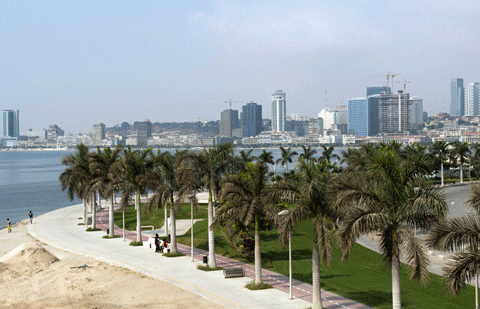Premier Li's other half Cheng Hong makes her mark
Updated: 2014-05-05 08:16
By Mei Jia and Cheng Yingqi (China Daily)
Comments Print Mail Large Medium SmallWake-Robin, The Singing Wilderness, The Outermost House ... If you are a naturalist, you might be quite familiar with these masterpieces of nature writing.
What you might not know is that the translator who introduced these classics to China is Cheng Hong, a professor of English at Capital University of Economics and Business in Beijing.
Cheng is also the wife of Premier Li Keqiang.
 Cheng Hong, a professor of English at Capital University of Economics and Business in Beijing, is the wife of Premier Li Keqiang. |
In the abstract of Cheng's book Tranquility Is Beyond Price, published in Shanghai in 2009, Cheng wrote that she developed her interest in US and British writings on nature and ecology when she was a visiting scholar at Brown University in the United States.
"The inner landscape of an individual is nourished by natural scenery," she wrote in the preface.
SDX Joint Publishing Co in Beijing brought out four of Cheng's translations in a collection of American nature writing in August 2012. The collection has been a hot seller since its publication.
"Judging from editors' viewpoint, Professor Cheng is the kind of writer that editors would call 'the best'," Li Xuejun, veteran editor with SDX Joint Publishing, said.
Li has been working with Cheng since 2001, when the professor in the Foreign Language Department of Capital University of Economics and Business published her monograph Returning to the Wilderness.
"She treated every detail in the editing process carefully. She never muddles through revisions, nor insists on some points without further explanations," Li said, adding that she has edited five of Cheng's books, including translations.
Li said Cheng's Returning to the Wilderness is the first Chinese research work to serve as a systematic introduction to American nature writing.
"She's able to persist in the area, and continually offers the readers her new discoveries in the area," Li added.
The series of her writings and translations "is a selection of classic US nature writing, reflecting different features of US writing from different angles," Li said.
Li said Cheng remained low-profile after publishing the series and asked not to do book promotions.
"Professor Cheng impresses me with her attitude toward academic research," Li said. "She's a conscientious and arduous worker. She's strict with academic norms, showing her respect for research."
Li also noted that Cheng would work back and forth on selecting the "best" wording for her writing or translations.
"For the best expression, she'd always ask for advice from others. Thus I believe her works can stand the test of time," Li added.
Wang Yufeng, a lecturer on English literature at Xiamen University of Technology, said he studied Cheng's Return to the Wilderness, which left a strong impression.
"Professor Cheng is indeed one of the forerunners in Chinese study of US nature writing," Wang said, "And she's able to present scholarly ideas with elegant and well-written language."
Having promoted research on nature writing and ecocriticism, Cheng has been writing books, translating American authors, and writing columns to systematically introduce the school of literature and its relevant literary theories to Chinese readers.
"I feel the power of literature when reading Cheng's translations," a reader on Douban.com wrote. "The translator introduces relatively less-known writing to the Chinese readers well.
And her translations well convey a sense of peace of mind resulting from man/nature harmony."
Cheng was born in 1957. Her father, Cheng Jinrui, was leader of the Henan Communist Youth League, and her mother, Liu Yiqing, was a journalist for Xinhua News Agency, according to an earlier report of Sohu.com.
Cheng went to the countryside as a youth during the "cultural revolution" (1966-76). When she returned to the city, she went to Peking University for English studies, and that is when she met her husband.
Li Keqiang at that time was the leader of the Communist Youth League at Peking University, according to a Xinhua report.
Shortly after their marriage, Cheng took a teaching post at the Capital University of Economics and Business. She got opportunities for mid-career studies at the Chinese Academy of Social Sciences and received her doctorate in 2000, and was appointed a full professor one year later.
The couple have a daughter.
Contact the writer at meijia@chinadaily.com.cn







